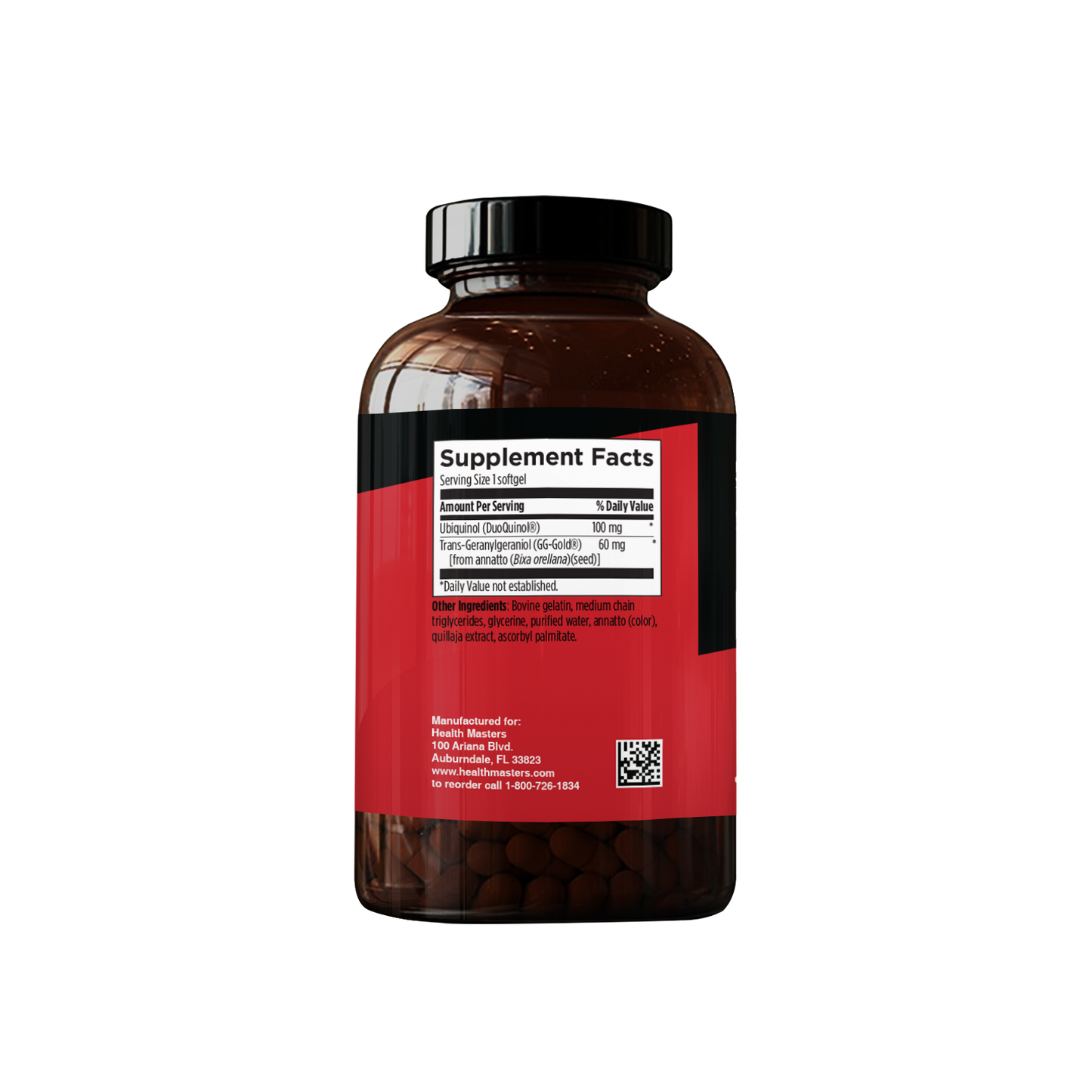CoQ10 Ubiquinol — Bioactive CoQ10 for Energy, Heart, and Antioxidant Support
CoQ10 Ubiquinol is a highly bioavailable form of Coenzyme Q10 that directly supports your body’s cellular energy production, cardiovascular health, and antioxidant defense. As we age or take certain medications like statins, our ability to convert CoQ10 into Ubiquinol declines—making this bioactive form essential for maintaining optimal health.
Ubiquinol plays a central role in energy metabolism by fueling your cells with the energy needed for daily activity, exercise, and long-term vitality. As one of the body’s most powerful lipid-soluble antioxidants, Ubiquinol also protects against oxidative stress, safeguarding tissues, cholesterol, and cell membranes from free radical damage.
In addition to cardiovascular and cellular protection, CoQ10 Ubiquinol supports cognitive function, mood balance, and memory by defending brain cells from oxidative damage. This formula features Kaneka QH™ Ubiquinol, the gold standard in CoQ10 technology, backed by decades of clinical research for superior stability, purity, and absorption.
Key Benefits:
-
Supports cellular energy production and daily stamina
-
Promotes heart health and cardiovascular function
-
Provides powerful antioxidant protection against oxidative stress
-
Supports healthy cholesterol levels and cell membrane integrity
-
Enhances cognitive function, mood, and mental clarity
-
Ideal for adults over 40 and those taking statins
-
Features Kaneka QH™—the most trusted, bioavailable Ubiquinol
Whether you're looking to boost energy, support heart health, or protect against oxidative aging, CoQ10 Ubiquinol delivers proven, clinically supported benefits for long-term wellness.



